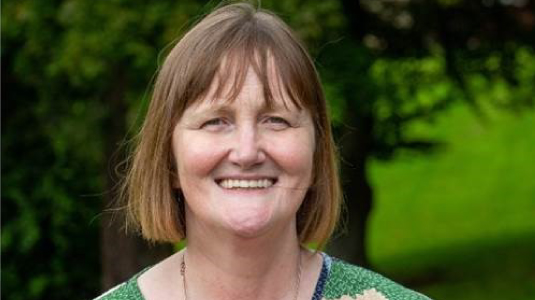SFC news published since 2018. See SFC archived content for earlier news articles.
Donella Beaton outlines how RGU has used SFC’s Upskilling Fund to respond to some of the challenges and opportunities arising from the pandemic.


The much-appreciated SFC Upskilling Fund has stimulated real developments in the HE sector, but it is now having to do so much more than, I imagine, it was originally intended. The importance of these funds in enabling universities to support those suffering real job insecurity cannot be overstated. The critical questions now are who to help, and how to maximise impact.
At RGU, we take an industry-informed approach when planning for future developments, including our short-course provision. This was revisited through 2020, in light of the pandemic and the strive for Net Zero. Outcomes of a review of the many relevant sector, skills and regional reports published through 2020, alongside discussions with businesses, trade organisations and partners were cross-checked against RGU’s own capabilities. This focus helped us to institutionally prioritise two sectors and three cross-sectoral themes.
We drew up our aspirational upskilling course directory, but then faced the challenge of prioritisation – do we go cross-sector for large numbers, or do we go for sector-specific skills and risk helping fewer people? Or perhaps we should focus on developing more T-shaped professionals, with a flexibility that’s going to be much needed. Only when we had answers to each of these questions could we start to consider which courses would best suit the SFC Upskilling Funds and therefore go ahead and make the difficult decision as to what to leave out.
In 2020, we kept our options open to better evaluate the impact, by going for a mix. This included the cross-sector appeal of Data Analytics for Business Decision Making and Strategic Digital Marketing. It also included the specialised skills, delivered cross-sector of Introduction to Practical Data Science with Python. The development of T-shaped individuals was also trialled with a focus on those who will save and enrich lives, Leading Innovation in Health & Social Care and a specialised course for the creative sector, Creative Entrepreneurship.
So why did we choose Creative Entrepreneurship?
The Creative Industries Federation estimates the GVA of the creative industries at £115.9 bn and employing over 2 million people pre-pandemic. The collective value of the sector, despite the average company size, is therefore massive and not only in financial terms. The real value to society is even greater. In the future, if not now, these creatives will be the ones who will bring true colour to all our lives.
However, job security in the creative sector at the best of times is often marginal and for many, right now, it has almost become impossible.
In 2019, RGU ran its first Creative Accelerator programme, delivered in partnership by Gray’s School of Art, the Entrepreneurship and Innovation Group and Look Again, the creative unit based at Gray’s. The Accelerator successfully worked with 10 enthusiastic microbusinesses, freelancers and the self-employed to develop areas of interests into sustainable and growing businesses.
With the support of the SFC Upskilling Fund, and building on the Accelerator Programme, in 2020 the University launched a 15-credit Creative Entrepreneurship course to help creatives in the North East of Scotland to turn their ideas in to reality, thereby sustaining jobs and growing opportunities.

The course was delivered across two cohorts to 47 creatives from a range of specialisms including visual art, fashion and textiles, design, crafts, broadcasting, performing arts, animation, illustration, photography, ceramics, and music production.
In response to the pandemic, the weekly workshops for the second cohort were held online with tutor-led activities, industry speakers and peer-to-peer interaction. The online platform provided the opportunity to invite speakers from anywhere and the second cohort could enjoy wider networking as the participants came from across Scotland. The programme culminated in a great digital showcase event, open to the public, and we now look forward to the day when we can attend in person, support the sector, and appreciate the artistry.

